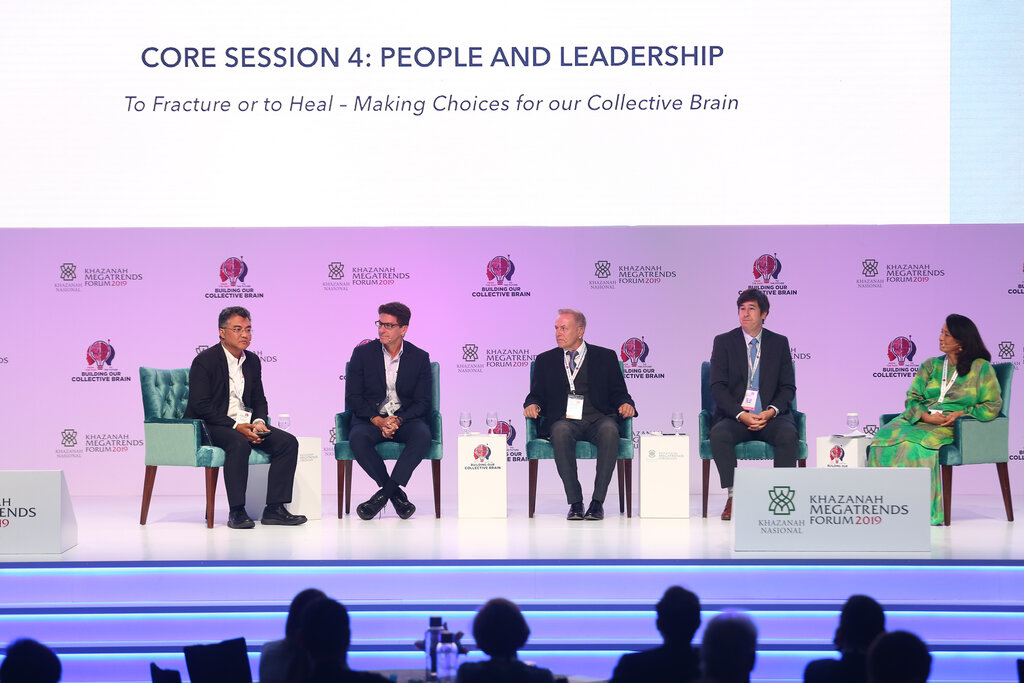Session Summary
Trust, beliefs, and identity are among forces that are fundamental to the functioning of a society.
The forces fundamental to the functioning of a society and its economy tend to lack visibility and are hard to measure.
Performance of economic and financial indicators as well as government policy – while visible and easily measured – do not give a full picture of how a society and its economy function. More fundamental forces such as trust, beliefs, and identity tend to be less visible and harder to measure.
Belonging in a group can be paradoxical as it may result in low relational mobility.
Being part of a group can, at times, be paradoxical in nature. Humans are hardwired to desire to belong in a group but in some societies (e.g. Indonesia, Malaysia, and Japan), people tend to remain in the groups that they are initially born into and do not mix around much (i.e. low relational mobility).
Subconscious cues related to cultural learning can be harnessed to reduce conformism bias.
Humans are also subject to conformism bias which may inhibit learning and creativity. However, humans are also evolved cultural learners that subconsciously use cues to decide who we will learn from (e.g. we prefer to learn from those that have prestige or are of the same gender), which can overcome that bias.
When facts cannot change minds, shared realities and knowledge give a voice for change.
Culture and beliefs shape the economy and public policy.
After Iranian Revolution in 1979, religion escalated to be central in the public policy space in Malaysia. Consequently, interpretations of religion into law have disadvantaged certain segments of society (i.e. women) and continue to do sog. Moreover, research has also found that obedient cultures are supportive for low-end manufacturing but not for high-end and dynamic manufacturing.
When facts cannot change minds, lived realities do.
Sometimes, facts aren’t enough to stifle cultural norms. However, shared lived realities can turn this around. For example, the “Me Too” movement quickly gained traction globally because women who can relate are now given opportunities to speak out, leading to cultural change in the workplace.
Transmission of knowledge gives voice for change.
Central to creating change is knowledge. Through transmission of knowledge, especially to those who are disadvantaged, individuals are given the courage to speak up.
One does not necessarily have to trade between ethnic and national identities; if anything, universal morals can bridge these two.
It is not necessarily the case that people trade between ethnic and national identities.
Empirical evidence suggests that integration between groups of different identities have shown to boost affinity towards’ one’s national identity. When groups are under threat, their sense of tribalism may increase which magnifies their sense of national identity.
There is evidence to support the existence of a universal morality.
Typically, there are two types of moral systems. Firstly, there’s communal morality which emphasises care for those within the community rather than outside of it. Secondly, there’s universal morality that stresses all people should be accorded the same treatment.
Universally shared morals can bring diverse groups together.
Given the existence of evidence for some universally shared morals, it can be used as a basis to bring diverse groups of people together and give rise to a “global citizen” type of mindset.
